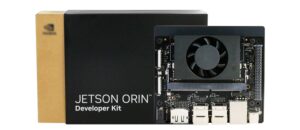
What is a Router? Your Guide to Internet Traffic Control
Imagine your home network is like a busy city, and data packets are cars trying to reach different destinations. The router acts as the traffic control system – directing all this information to the right places efficiently. Let’s explore what routers do and why they’re essential for your internet connection.
Router Definition: The Internet’s Traffic Director
A router is a networking device that:
-
Creates a local network (like your home Wi-Fi)
-
Connects this network to the internet
-
Directs incoming and outgoing internet traffic
-
Provides security through firewalls
Unlike switches that connect devices within one network, routers connect multiple networks together – most importantly, your home network to your ISP’s network and the broader internet.
Key Features of Routers




How Routers Work: A Real-World Example
Let’s follow what happens when you visit a website:
-
You type “google.com” on your laptop connected to your home Wi-Fi
-
Your router receives this request and checks its routing table
-
It sends the request through your modem to your Internet Service Provider (ISP)
-
The ISP connects to Google’s servers
-
Google’s response comes back to your router
-
Your router sends it specifically to your laptop (not your phone or other devices)
This entire process happens in milliseconds!
Types of Routers for Different Needs
| Router Type | Best For | Example Models |
|---|---|---|
| Wireless Routers | Homes & small offices | TP-Link Archer, Netgear Nighthawk |
| Wired Routers | Businesses needing stability | Cisco RV Series |
| Core Routers | Internet backbone | Juniper MX Series |
| Edge Routers | Connecting large networks | Cisco ASR Series |
| Virtual Routers | Cloud networks | AWS Virtual Router |
Router vs. Modem vs. Switch: What’s the Difference?
Many people confuse these three devices. Here’s how they differ:
| Device | Function | Where You’ll Find It |
|---|---|---|
| Modem | Connects to your ISP (brings internet to your home) | Between wall jack and router |
| Router | Creates local network & shares internet connection | Connected to modem |
| Switch | Connects wired devices in a network | Offices, data centers |
Home Setup Example:
Wall Jack → Modem → Router → Devices (via Wi-Fi or switch)
Why Routers Matter in Your Daily Life
-
Multi-Device Homes – Lets all your phones, laptops, and smart devices go online simultaneously
-
Parental Controls – Lets you restrict access to certain sites or set time limits
-
Guest Networks – Allows visitors to use Wi-Fi without accessing your main network
-
VPN Support – Some routers let you encrypt all home network traffic
Choosing the Right Router
Consider these factors when buying:
-
Wi-Fi Standard (Wi-Fi 6 is current best)
-
Speed Rating (AC1200, AX3000, etc.)
-
Coverage Area (Mesh systems for large homes)
-
Security Features (WPA3 encryption)
-
Ports (For wired connections)
Pro Tip: For most homes, a dual-band Wi-Fi 6 router with at least 4 LAN ports offers the best balance of performance and value.
Troubleshooting Common Router Issues

-
Rebooting the router
-
Changing Wi-Fi channels
-
Moving the router to a central location

-
A Wi-Fi extender
-
Mesh network system
-
Powerline adapters

-
Change default admin passwords
-
Enable WPA3 encryption
-
Keep firmware updated
The Future of Routers
Emerging technologies are changing routers:
-
Wi-Fi 7 (Coming soon – even faster speeds)
-
AI Optimization (Automatically adjusts settings)
-
IoT Focus (Better handling of dozens of smart devices)
-
5G Integration (Cellular backup connections)
Conclusion: Your Digital Home’s Command Center
Routers quietly power our connected lives, managing everything from your smart fridge’s updates to your 4K movie streaming. Understanding how they work helps you:
-
Make better buying decisions
-
Troubleshoot problems faster
-
Secure your home network
Whether you’re setting up a basic home network or managing a business system, the router remains the crucial link between your devices and the digital world.
Why Your Office Needs a Core Router: The Backbone of Business Networking
What is a Core Router?
A core router is a high-performance networking device that serves as the central hub of an enterprise network. Unlike standard office routers, core routers are built to:



Example:
Imagine a company with headquarters in New York, a branch in London, and remote workers worldwide. A core router ensures seamless data flow between all locations while maintaining security and speed.
5 Reasons Why Offices Need Core Routers
1. Handles Heavy Network Traffic Without Slowdowns
Standard office routers crash under heavy loads
Core routers process terabits of data per second
Prevents lag during video conferences, large file transfers, or cloud backups
Use Case:
A law firm transferring 500GB of case files between offices while 200 employees are on Zoom calls – the core router manages it all smoothly.
2. Connects Multiple Office Locations Securely
Creates a Wide Area Network (WAN) linking branch offices
Uses MPLS or VPN tunnels for secure data transfer
Ensures all locations work on the same network securely
Example:
A retail chain with 50 stores uses a core router to sync real-time inventory data across all locations.
3. Advanced Security for Business Protection
Built-in firewalls, DDoS protection, and intrusion detection
Prevents cyberattacks that target business data
Supports enterprise VPNs for remote workers
Security Feature Comparison:
| Feature | Standard Router | Core Router |
|---|---|---|
| Firewall | Basic | Enterprise-grade |
| DDoS Protection | No | Yes |
| VPN Support | Limited users | 1000+ connections |
4. Minimizes Downtime (99.999% Uptime)
Redundant power supplies (keeps running if one fails)
Hot-swappable components (repairs without shutdown)
Auto-rerouting if a network path fails
Business Impact:
For a bank or hospital, even 5 minutes of downtime can cost millions. Core routers prevent this.
5. Future-Proof Scalability
Supports growing offices (add more users without upgrades)
Compatible with SD-WAN, cloud services, and IoT
Handles new tech like 8K video, VR meetings, and AI tools
Scalability Example:
A startup with 50 employees today can grow to 500+ without replacing the core router.
Core Router vs. Edge Router vs. Office Router
| Feature | Office Router | Edge Router | Core Router |
|---|---|---|---|
| Best For | Small offices | Branch offices | HQ/data centers |
| Users | 1-50 | 50-500 | 500+ |
| Speed | 1 Gbps | 10 Gbps | 100 Gbps+ |
| Security | Basic | Medium | Military-grade |
Real-World Setup:
Core Router (HQ) → Edge Routers (Branches) → Office Routers (Departments)
Top Core Router Brands for Offices
Cisco Catalyst 9000 (Best for large enterprises)
Juniper MX Series (High-speed financial firms)
Huawei NetEngine (Cost-effective for mid-sized businesses)
Arista 7000 Series (Tech companies with heavy cloud use)
When Should Your Office Upgrade to a Core Router?




Cost Consideration:
While core routers cost $10,000+, they prevent far greater losses from network failures.
Conclusion: The Unsung Hero of Business Networks
A core router isn’t just a bigger office router—it’s the central nervous system of your company’s network. It ensures:




